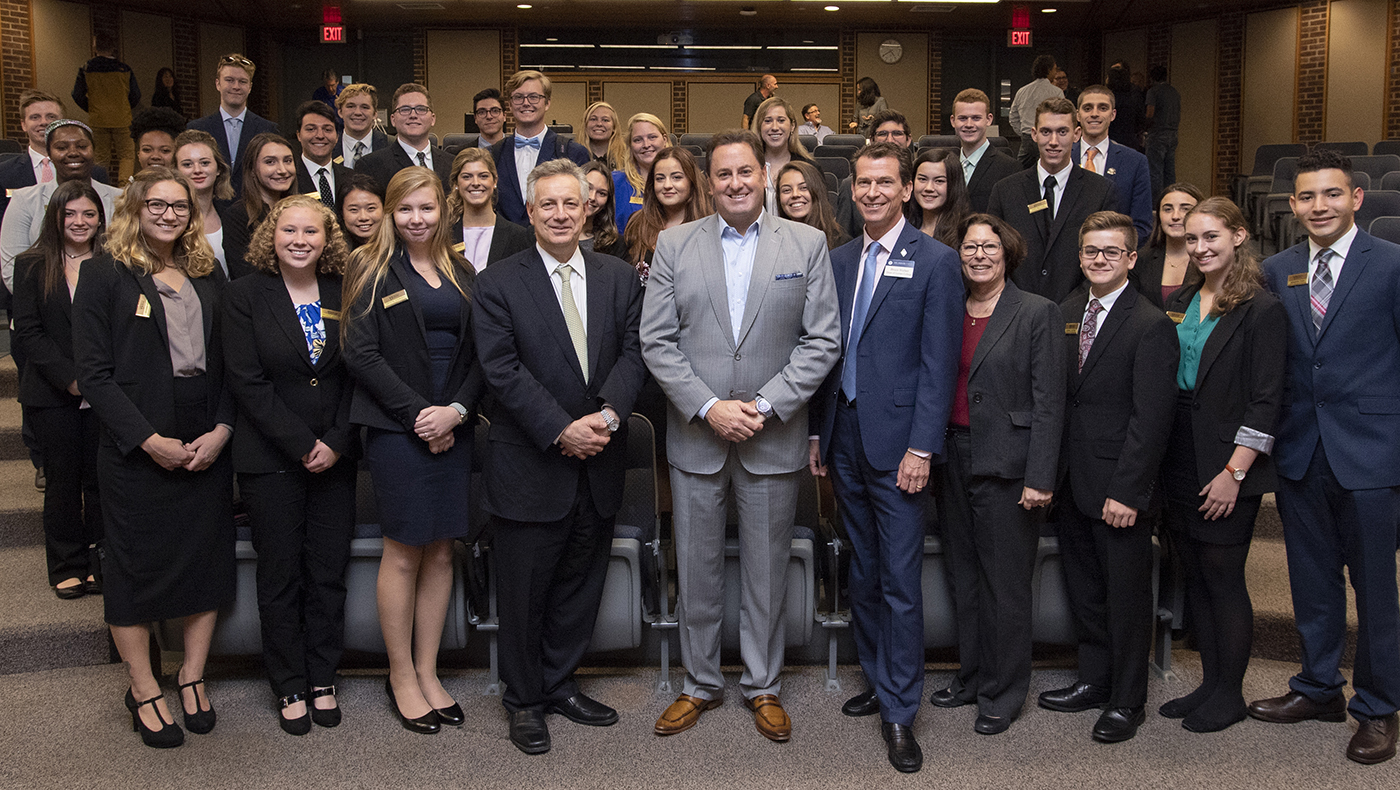Since we last spoke to Wawa President and CEO Chris Gheysens, his company has been in the spotlight almost nonstop. From the announcement of new stores opening in New Jersey, Washington D.C. and Florida to the addition of healthy grain bowls and catering options, it seems that Gheysens has followed his own advice, “Don’t be afraid to reinvent yourself.”
Last fall, the Lerner College’s Graduate and Executive Programs office welcomed Gheysens to speak as part of the Chaplin Tyler Executive Leadership Lecture Series. This series, supported by the Chaplin Tyler Endowment Fund, invites to UD leaders from the business, nonprofit and government sectors to share their stories with our community.
Gheysens spoke about the experiences that led him to working at Wawa, as well as insights into the company’s mission and philosophy. Read on for three key takeaways that future business leaders can learn from Gheysens and “The Wawa Way.”
Don’t be afraid to reinvent yourself.
This lesson came from both the history of Wawa and Gheysens’ personal history. In its more than 200 year history, Wawa has functioned as a producer of many vastly different services from dairy to diapers, constantly adapting to meet the needs of its community. During his presentation, Gheysens said that Wawa continues to make the customer its priority when implementing changes. In focusing on its consumers first, Wawa is able to be on the cutting edge of convenience and quality.
On the individual level, Gheysens began his career in accounting, working for some of the largest firms in the business. However, he wasn’t content with the culture and the focus of his work until he was assigned to work with Wawa. Gheysens trusted his instincts, going from the world of accounting firms to that of coffee and hoagies, and he has never looked back.
Value culture over convenience.
On the same presentation slide listing Wawa’s daily number of customers served and products sold, Gheysens chose to also feature an approximate number of doors held and smiles formed at Wawa. This level of prioritization is not unique to Gheysens himself; it has become the standard for the company.
When assuming the role of president and CEO, Gheysens said that one of his first goals was to establish an answer to the question, “What do we stand for?” After extensive evaluation, the company chose to focus on “why” before “what” in how they conduct business. This led Wawa to create a culture of purpose, where every employee strives towards “Fulfilling Lives Every Day.” As Gheysens put it during the lecture, “The community becomes part of the culture. That’s my Wawa.”
Happy employees create happy customers.
“You have three minutes to make someone’s life better.” Gheysens reiterated this point regularly throughout the lecture. In a particularly poignant moment, he told the story of an employee who saw that a regular customer wasn’t acting like themselves. That employee took the time to ask the customer what was wrong, and upon hearing about his daughter’s emergency surgery, comforted him until he was able to move forward with his trip to the hospital.
Gheysens believes that this interaction, and others like it, don’t happen by accident. Wawa recruits employees that fit into its culture, he said, then works to ensure that those employees are satisfied and happy. These employees are in turn prepared to provide the environment and interactions necessary to create the positive culture and community that Wawa strives for.




